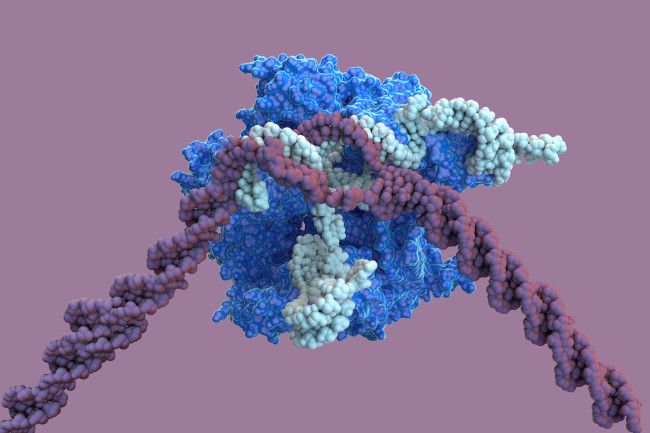After years of ethical debates and breakthroughs in the lab, CRISPR has finally made its way to clinical trials. Researchers are now looking at whether the DNA-editing tool, as well as more conventional gene therapies, can effectively treat a wide array of heritable disorders and even cancers.
“There’s been a convergence of the science getting better, the manufacturing getting much better, and money being available for these kinds of studies,” says Cynthia Dunbar, a senior investigator at the National Heart, Lung, and Blood Institute. “It’s truly come of age.”
CRISPR — formally known as CRISPR-Cas9 — has been touted as an improvement over conventional gene therapy because of its potential precision. CRISPR (clustered regularly interspaced short palindromic repeats) is a genetic code that, contained in a strand of RNA and paired with the enzyme Cas9, acts like molecular scissors that can target and snip out specific genes. Add a template for a healthy gene, and CRISPR’s cut can allow the cell to replace a defective gene with a healthy one.
